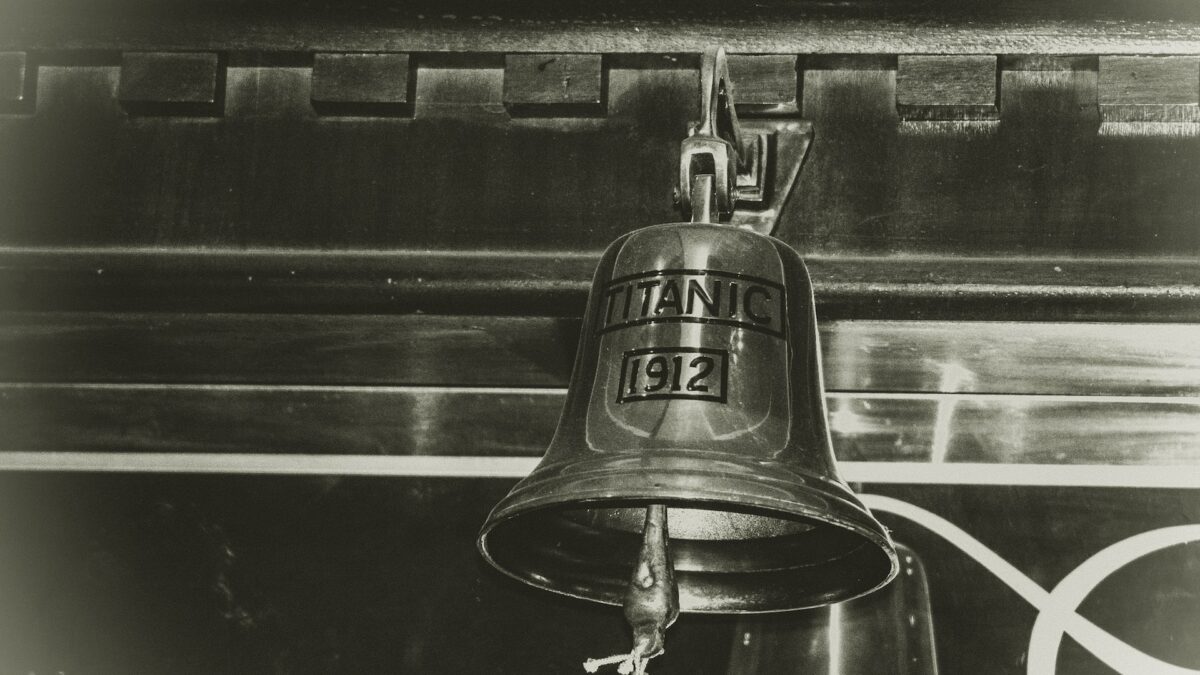Forgetting God: A Titanic Lesson
Remember, “Not even God himself could sink this ship!”
We never seem to lose our fascination with the story of the sinking of the Titanic. Since boyhood, I’ve watched all the oldest films made on the disaster, and I’m ready for every new version of it that comes to TV or the movie theater.
A while back, I was watching a special about it on PBS, leading up to the 100th anniversary of the tragic event. In it, the narrator explained that it wasn’t just about a ship but about the people and all the tales of heroism and cowardice from the event.
The Titanic was more than an icon—it was an idol because it was the physical embodiment of the unbounded human-centered optimism of the era. The world was getting better every day, onward, and upward. Humanity was taking control of its own destiny by the sheer magnificence of its planning and engineering. Literature, philosophy, and theology reflected the rapid rise of human glory and intelligence. Everyone was awakening to the realization that the old biblical view of humanity’s sinfulness and depravity was on the way out. Did we even need God anymore? Remember, “not even God could sink this ship.”
But the world was stunned when the Titanic slipped so quickly and easily beneath the waves and disappeared into the freezing water. “How could this happen?”
Yet the shocks were just beginning.
The world’s sense of optimism was shaken to the core two years later when it was plunged into a horrific war—a massive, mechanized carnage that no one could have ever imagined. Not just thousands but hundreds of thousands perished in a single battle.
The great Titanic was now the world. The whole planet was sinking, and nothing could be done to stop it. It was out of our control, and powers we didn’t even understand seemed to be taking charge. When the “war to end all wars” was over, we emerged a different people.
But it still wasn’t over.
The rise of Communism, the Great Depression, World War II, and the Cold War followed. You’d think that never again would we take the good days of increasing prosperity, freedom, and safety for granted. Indeed we learned our lesson that God alone rules his world and that to turn from him and to our resources, brilliance, and greatness will always result in disaster.
So much has changed since April 1912, hasn’t it? With COVID-19 and coming out of lockdown, we have yet to assess the global damage to our prosperity and personal freedoms.
To many, it appears we have forgotten God and come to trust our ways just as thoroughly as they did then but have outdone them in the speed at which we’ve tossed overboard God’s Word, law, and sovereignty. We have replaced them and his kingdom with gadgets, toys, and religions of our own making.
Today’s church is virtually indistinguishable from the world in general. In Faith Has a Limited Effect On Most People’s Behavior, pollster George Barna concluded: “…many Christians are hard-pressed to convert their beliefs into action.”
The Titanic fascinates us because it is as relevant now as it was then. It stands in our memories as the perennial warning sign to any society that pushes God aside and becomes fixed upon itself and its capacity to reach into the heavens and bring all its glory down to earth.
What can we, as believers, do to make a difference? The answer is simple but far from easy. It requires facing humiliation, dishonor, and rejection by a society hostile to the Christian faith and often, even more heartbreaking, our immediate circle of friends. “This is a time,” Francis Shaeffer writes, “to show to a generation who thinks that the concept of truth is unthinkable that we do take truth seriously.”
-Photo by K. Mitch Hodge on Unsplash







